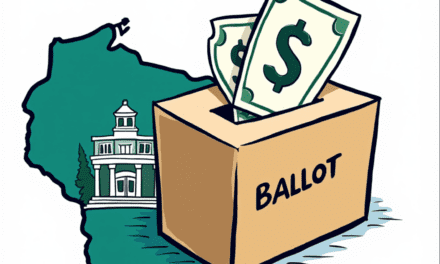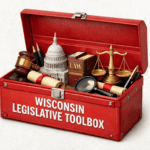Madison, Wisconsin (August 22, 2024) – Wisconsin’s grocers understand the deep concerns surrounding inflation and its impact on Wisconsin families. Inflation over the last few years caused by the economic shock of the pandemic is frustrating for everyone. Increases on the cost of goods, utilities, wages and benefits, home and auto insurance, interest rates, have a toll on everyone. However, the proposals from the Harris campaign and third-party organizations advance misguided policies and run counter to economic history.
Vice President Harris says the government will fine companies that gouge their prices. Wisconsin already has a price gouging law, and the solutions touted nationally demonstrate a puzzling approach to economic policy. There is no evidence to suggest this is a common practice in the grocery business. Why? Because grocers who already work on razor-thin margins, can’t arbitrarily raise prices. Their customers will go down the street to a competitor who has a lower price.
It was only a short time ago that the pandemic brought an economic shock to our nation and disrupted the grocery business from end-to-end. Inflation shot up to 9%+ and every cost in the supply chain, from growers, producers, manufacturers, suppliers, transportation and more all saw their costs increase to produce the same products.
The economic reality is that these increases are now “baked into the cost of products” which are what shoppers see on store shelves. But, here’s the scoop, costs simply don’t come down. Inflation goes up and down, but it is not the price. It’s the rate of increase.
Equally as important was and is the disruption of the workforce and the cost of finding and replacing workers. Increased costs plus workforce shortages cause long-lasting issues throughout the entire supply chain.
Politicians, for all their campaign rhetoric, can’t just wave a wand and reduce grocery prices. These types of policies would almost certainly have the opposite effect of what they intended. Marketplace interventions tend to raise prices. They are unclear if they reduce the rate of inflation and could even create other market distortions. History signals that, when government gets involved, costs go up just to comply with new government regulations.
The good news is that Wisconsin grocers will quietly do what they always do, show up early and stock the shelves to serve their communities. They’ll focus on keeping their prices as competitive as possible and providing quality products with great service.


















